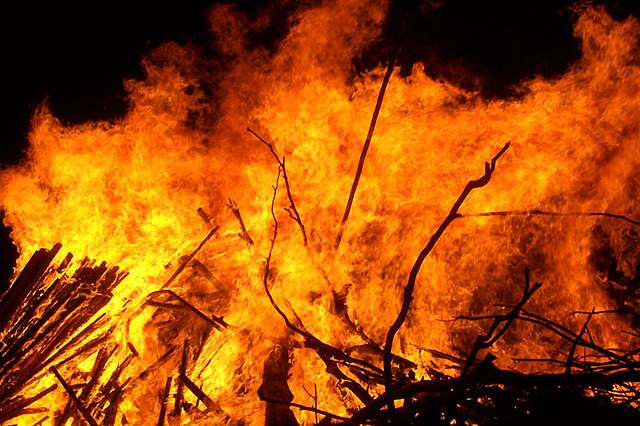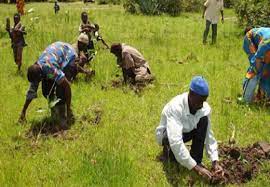As the Ororo -1 Well at OML95 fire in Delta rages on for the past three years without attention, the Health of Mother Earth Foundation (HOMEF) has said the inferno is harming marine ecosystems and disrupting fishing and other economic activities of the nearby communities.
The Foundation in a statement titled, “Ororo-1 Inferno- A Tragic Case of Injustice and Environmental Destruction,” made available to journalists on Saturday by it Communication lead, Kome Odhomor, said the burning well has now become a symbol of ecocide and outright neglect by the Nigerian government.
According to the statement, several environmentalists have expressed their concerns over decades of destructive extraction of petroleum resources that disrupt ecosystems with decades of exploration and have turned a once-thriving region into one of the most deadly and polluted places on earth.
“Awoye’s tale is a sad example of a healthy region turned into a sacrifice zone by the pursuit of fossil fuels.
“A 2021 report by African Oil and Gas Report, stated that “Although the company that engaged the services of the owners of Grace-1 HWU was Guarantee Petroleum, a Nigerian E&P independent, the Nigerian government, having revoked the rights of the company to the field, took ownership of controlling the Well fire.
“The Department of Petroleum Resources (DPR), in May 2022, told Africa Oil+ Gas it would do all it could to extinguish the fire, including possibly drilling a relief well and engaging Boots & Coots Services, a Halliburton-owned firm of well control specialists, to put out the fire,” the statement reads.
The Foundation therefore called for quenching of the raging fire at Awoye, saying this tragic incident compounds the climate crisis and harms the communities and ecosystems in multiple ways.
According to it, “Field data reports show that the reservoir pressure was 8,000 pounds per square inch (psi) and above, and surface pressure was about 4,600 psi as of the incident. It’s a widely held view by a range of technical specialists in the industry that such a highly pressured well should not have been
re-entered with a workover rig with less than adequate blowout preventer (BOP).
“Stopping the flaming well isn’t rocket science. What is needed is an understanding that the cost of this unattended disaster is far higher than the cost of drilling relief wells and other actions to quench the flames and save the communities,” the Foundation said.
It also called for the ending of dependence on fossil fuels and leaving the oil on the ground while ramping up investment in renewables.




